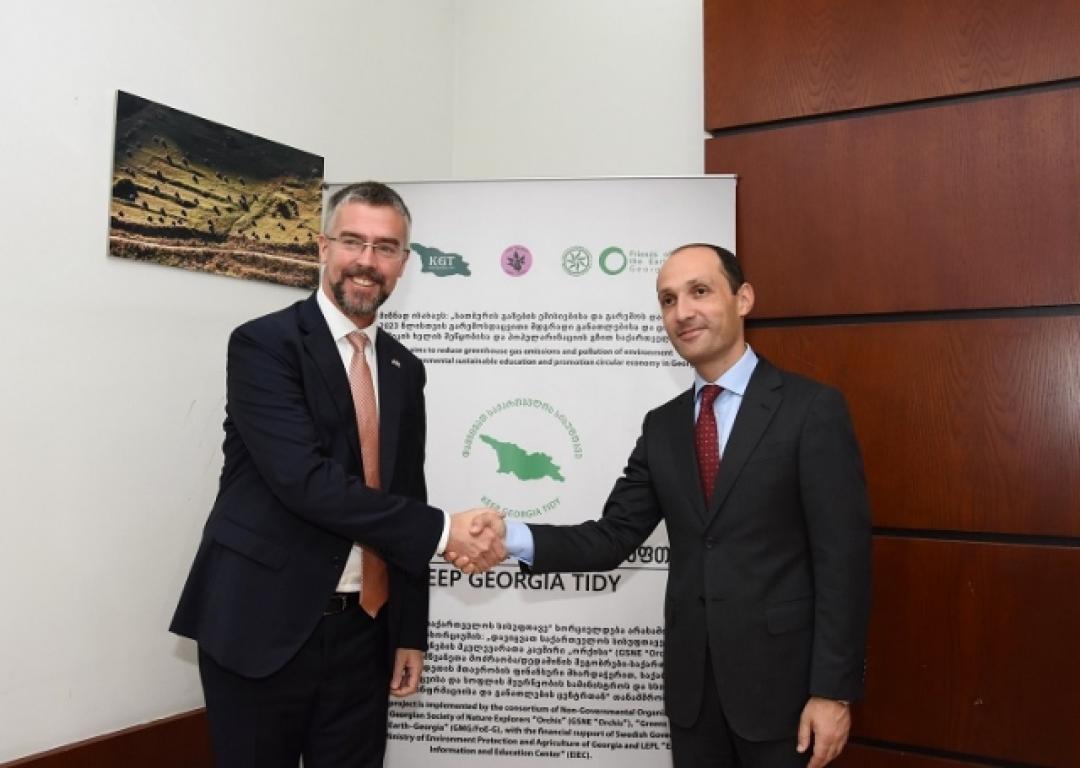
New environmental project launched in Georgia

On 10 September the Georgian Ministry of Environment Protection and Agriculture with support of the Swedish government, the Greens Movement of Georgia and the NGO Keep Georgia Tidy (KGT) launched the project “Keep Georgia Tidy” which will cover a 4-year period from 2019 to 2023, reported georgiatoday. Local and Swedish partner-organizations along with the Georgian Society of Nature Explorers “Orchis” will be actively involved in the implementation of the project. The Environmental Information and Education Centre and the Solid Waste Management Company of Georgia are also partners.
Ulrik Tideström , the Swedish ambassador to Georgia highlighted the importance of the project. “The project aims to reduce pollution and emissions by educating 700.000 people [including] schoolchildren on sustainable development,” read his Twitter post. The project should serve the ultimate goal of reducing the pollution of the environment and greenhouse gases by 2030, promoting sustainable environmental education and circular economy in the country.
Project events will be held in Tbilisi, 10 regions throughout Georgia, 63 municipalities and 4 self-governing cities. It was also noted at the press conference that there are various activities planned to take place on more than 1,000 locations across the entire country on September 20-22 as a part of the World Clean Up campaign.
The NGO “Keep Georgia Tidy” for which the project was named after is association of scientists, experts, activists, environmentalists and volunteers actively working to protect the environment. The activities of the NGO were connected with “Clean Up Georgia –Phase III” project, which focused on environment protection and reduction of climate change impact through challenging of waste management and enhancing population responsibility in Georgia.
According to the “Vision for improved knowledge and monitoring of the global environment in Georgia” an official document released by the Georgian Ministry of Environment Protection, the role of research organizations in Georgia is underestimated compared with their role in EU countries. This is because less institutes take part in important projects than they would under more favourable conditions. The underestimation has a negative impact on environmental monitoring and the information improvement process. The document also states that local authorities in the country have quite a limited number of statutory functions in the environmental management realm. According to the document, NGOs also face difficulties in Georgia as they often have difficulties in accessing government owned data. The announced project would also focus on enhancing the role of these actors in environmental protection.
See Also


Armenia Records 5.9% GDP Growth in 2024, Missing 7% Goal

Yerevan Balances Strategic Ties with Both US and Russia, Says Foreign Minister

FM Mirzoyan: Peace Deal with Azerbaijan Is Within Reach

Pashinyan and Erdogan Hold Call, Reaffirm Commitment to Ongoing Dialogue

